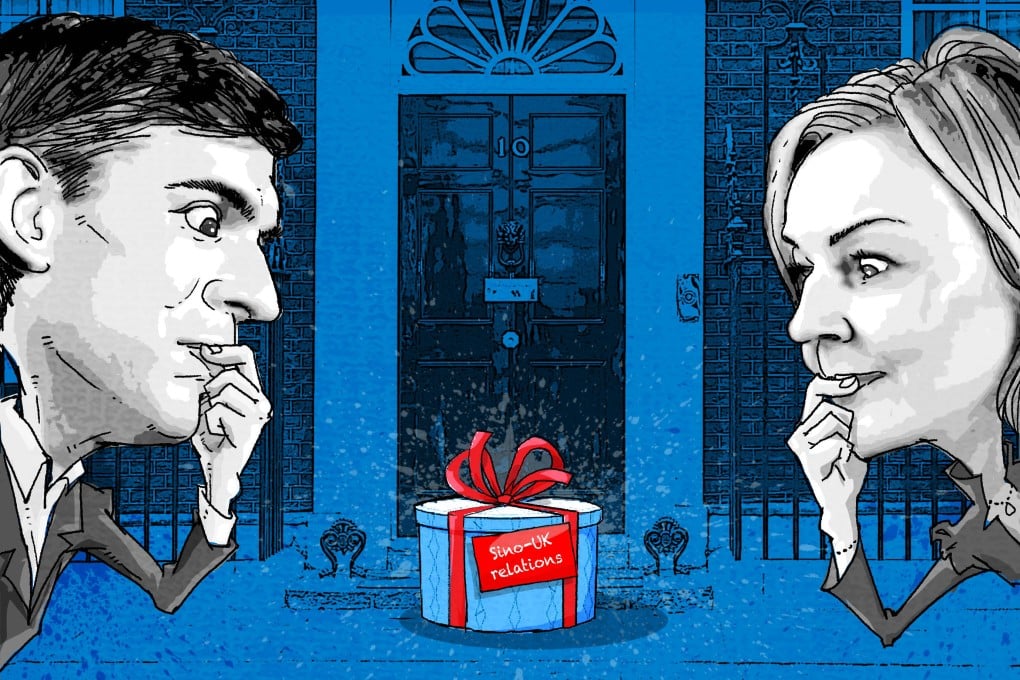Advertisement
Two finalists in race for British PM unlikely to lead to big changes in Sino-UK relations
- Former chancellor Rishi Sunak viewed as more pragmatic on China, with Foreign Secretary Liz Truss seen as more hawkish
- Bilateral relationship has deteriorated since ‘golden era’ of investment and cooperation under former prime minister David Cameron
Reading Time:5 minutes
Why you can trust SCMP
54

The two finalists in the race to replace Boris Johnson as Britain’s prime minister are unlikely to significantly improve the increasingly tricky relationship between China and the United Kingdom less than a decade removed from a “golden era” of investment and cooperation between the two nations, according to academics and political observers.
On Wednesday night, the field of candidates to succeed Johnson as prime minister was reduced to two candidates from an initial eight, with a new leader expected to be chosen by members of the ruling Conservative Party in early September.
Rishi Sunak, who headed Britain’s Treasury as chancellor of the exchequer before resigning this month, and Foreign Secretary Liz Truss will fight it out over the summer to become Britain’s fourth prime minister since 2016.
Advertisement
Both candidates have previously talked of the need to have a “hard-headed” approach when it comes to China, with Truss often described as the most hawkish member of Johnson’s cabinet on China.
“No matter who is the prime minister, Sino-British relations are unlikely to improve significantly over time,” said Shi Yinhong, an international relations professor at Renmin University in Beijing.
Advertisement
The relationship between Beijing and London has deteriorated in recent years over British concerns about the use of Chinese technology in key infrastructure, purported human rights abuses in China’s far western Xinjiang Uygur autonomous region and the adoption of a controversial national security law for Hong Kong.
Advertisement
Select Voice
Select Speed
1.00x
